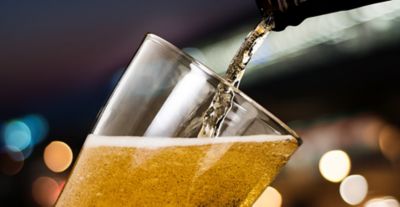Understanding wine filtration
Filtration is a pivotal stage in winemaking, positioned after fining and before bottling. While fining addresses the removal of large particles, filtration takes care of the finer details, removing residual particles and ensuring bacterial stabilization. Both red and white wines undergo filtration, enhancing their clarity and safety for consumption. This critical process not only improves the visual appeal of the wine but also contributes to its overall stability and longevity.
Filtration is a pivotal stage in winemaking, positioned after fining and before bottling. While fining addresses the removal of large particles, filtration takes care of the finer details, removing residual particles and ensuring bacterial stabilization. Both red and white wines undergo filtration, enhancing their clarity and safety for consumption. This critical process not only improves the visual appeal of the wine but also contributes to its overall stability and longevity.
Filtration is a pivotal stage in winemaking, positioned after fining and before bottling. While fining addresses the removal of large particles, filtration takes care of the finer details, removing residual particles and ensuring bacterial stabilization. Both red and white wines undergo filtration, enhancing their clarity and safety for consumption. This critical process not only improves the visual appeal of the wine but also contributes to its overall stability and longevity.
Filtration is a pivotal stage in winemaking, positioned after fining and before bottling. While fining addresses the removal of large particles, filtration takes care of the finer details, removing residual particles and ensuring bacterial stabilization. Both red and white wines undergo filtration, enhancing their clarity and safety for consumption. This critical process not only improves the visual appeal of the wine but also contributes to its overall stability and longevity.
Process filtration helps preserve the wine's intended flavor profile and aromatic qualities by removing unwanted microorganisms and potential spoilage agents. Furthermore, the consistency achieved through effective filtration ensures that each bottle meets the winemaker's standards, providing consumers with a reliable and enjoyable drinking experience
Wine filtration process
Filtration involves passing wine through specialized filters designed to extract yeast, bacteria, and other microscopic entities that can affect the wine's quality. This meticulous process not only clarifies the wine, enhancing its visual appeal, but also prevents refermentation and eliminates risks associated with unfiltered wines. By employing various types of process filtration techniques, such as depth filtration and membrane filtration, winemakers can ensure the removal of unwanted particles while preserving the wine’s essential flavors and aromas.
Impact of filtration in wine production
Excessive filtration can have its drawbacks as well, such as stripping away essential aromatic and flavor compounds, potentially affecting the wine's aging capability and overall character. Therefore, balance is key in the process of wine filtration.
By carefully selecting appropriate filtration media and techniques, winemakers can avoid over-filtration and maintain the wine’s integrity. Filtration, when done correctly, serves multiple purposes:
- Clarification: removing suspended solids from pressing and fermentation
- Purity: Eliminating additives used during aging, such as bentonite or gelatine.
- Stability: ensuring the wine is free from microorganisms that could induce fermentation in the bottle.
Filtration phases in winemaking
- Wine cellar filtration: initially, static clarification, vacuum filters or centrifuges, crossflow, and filter aid.
- Post Fermentation: techniques like filter aid systems or crossflow units precede tartaric stabilization, employing cartridges or cold technologies. Subsequent filtration may involve filter sheets, crossflow, or filter elements.
- Maturation and Blending: this stage utilizes crossflow or filter sheets for clarifying the blend, and cartridges filtration for white wine.
- Bottling preparation: the final filtration steps before bottling ensure the wine is clear and stable, employing two to three filtration stages upstream of the bottling machine.
Atlas Copco is dedicated to supporting wineries in producing exceptional wines. Our process filters are designed with the intricacies of winemaking in mind, ensuring that your wines meet the highest standards of clarity, stability, and quality. Contact one of our experts today.




